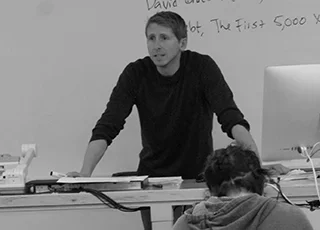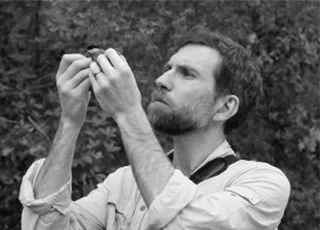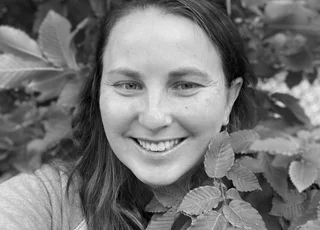Environmental Studies
Your world
How will we respond to global climate change? Can we a feed growing human population without sacrificing biological diversity? What are the economic and political challenges in achieving environmental sustainability? How can the arts empower the address of environmental problems? Defying an easy separation of human worlds and natural worlds, environmental issues are particularly challenging, as they call for understandings and collaborations that reach across traditional disciplines—the humanities as well as the social and natural sciences.
Bennington’s individual student-designed programs offer a powerful approach to engaging the environment. Faculty from all of Bennington’s disciplines participate in designing a broad and flexible curriculum that supports students’ work in environmental studies. Students draw on these deep and diverse resources to assemble the tools necessary to gain new insights and frame new interventions into today’s environmental problems.
Additionally, Bennington’s emphasis on real-world work provides practical depth in environmental studies. Students link coursework with Field Work Term internships, community partnerships, and independent research to obtain the training and experience needed to inform meaningful change. Among these opportunities is a study abroad option at the Arava Institute for Environmental Studies in the Middle East, which is dedicated to preparing future leaders from Israel, Palestine, Jordan, and around the world to cooperatively solve the regional and global challenges of our time. Environmental studies students also apply their learning to campus initiatives, like the Sustainability Working Group, student environmental interest groups, and the student-run Purple Carrot Farm.
Students who focus in environmental studies complete culminating projects that include research on the causes and manifestations of environmental problems, development of innovative and equitable solutions, and/or creation of new ways to express and communicate people’s relationship to their environment. Environmental studies graduates work in applied scientific research, policy development, conservation management, and political advocacy.
Learn more about studying at Bennington by contacting our admissions office
At Bennington, students work closely with faculty to design the content, structure, and sequence of their study and practice—their Plan—taking advantage of the College's resources both inside and outside the classroom to pursue their work.
Faculty
Faculty experts in a broad range of fields come together to study the environment from every perspective. What they share is a commitment to integrating theory and practice by taking their work out of the classroom and into the field.
Field Work Term
Bennington students can be found on every corner of our campus, our state, our country, and our world, deepening their knowledge of environmental issues and finding new ways to think about what they're learning in the classroom and the lab.
- Arnold Arboretum at Harvard University
- Brooklyn Botanical Garden
- Department of Parks and Natural Resources
- East Wind Community
- Environment Maine
- Environmental Protection and Development Association
- Frontier: The Society for Environmental Exploration
- I AM WATER Foundation
- Living Roots Eco Village
- Maine Sierra Club
- Marjory Stoneman Douglas Biscayne Nature Center
- National Park Service, U.S. Virgin Islands
- Oahu Army Natural Resources Program
- Saguaro National Park
- Sierra Club
- Stone Barns Center for Food and Agriculture
- The Long Now Foundation
- The Nature Conservancy
- The Wild Horse Sanctuary
- Trust for Public Land
- Urban Forager



























